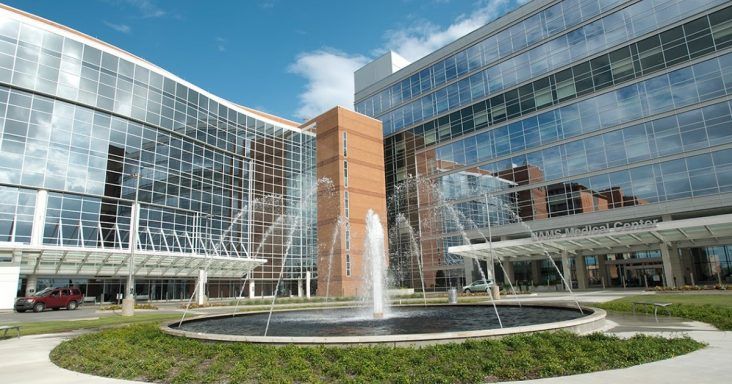National Institutes of Health awards $31.7 million to UAMS
by July 10, 2024 1:27 pm 434 views

The University of Arkansas for Medical Sciences (UAMS) Translational Research Institute announced Wednesday (July 10) that it will receive $31.7 million to continue its role in a national effort to accelerate discoveries for the toughest health challenges.
The funding by the National Center for Advancing Translational Sciences (NCATS) at the National Institutes of Health (NIH) puts UAMS among an elite group of research centers, it said. The highly competitive Clinical and Translational Science Award (CTSA) goes to only about 60 research institutions nationwide.
“This award attests to the unique capabilities of UAMS researchers in advancing discoveries and treatments,” said U.S. Sen. John Boozman, R-Ark. “The institute has helped put UAMS in position to conduct exceptional, innovative science that’s on par with the best research institutions in the country. We can be proud this outstanding work is occurring right here in our state to improve the lives of Arkansans and all Americans.”
UAMS Chancellor Dr. Cam Patterson said the medical school has pledged matching funds to significantly enhance the award’s impact on UAMS research.
“The Translational Research Institute has been a driving force for research innovation that speeds the pace of research in pursuit of health solutions,” said Patterson. “Under the strong leadership of Dr. Laura James, the institute has developed and will now implement its terrific plan to build on its vital work of the past five years.”
The CTSA includes a primary grant, which totals $26.9 million over seven years, and two linked grants for training early career researchers, which total $4.73 million over the next five years.
James, UAMS associate vice chancellor for Clinical and Translational Research, is the principal investigator on the primary grant, which supports key aspects of research programs that support investigator training, clinical trials, community engagement, informatics, statistics and team science to ensure that UAMS researchers have access to state-of-the-art approaches for clinical and translational research.
“This a great day for UAMS and a great day for Arkansas,” said James. “We are very proud to continue to be part of this distinguished clinical and translational research program, which ensures that Arkansas has a leading role in research that will allow earlier detection of diseases and provide better medical treatments in the future. Clinical research drives changes in how future patients are treated, and our aim is to create and lead high quality research that is responsive to the health needs of Arkansans.”
The institute supports research that addresses significant health challenges in Arkansas, such as high blood pressure, pain management, diabetes and obesity, substance abuse, mental health and rare diseases. It is also expanding opportunities for UAMS researchers to participate in multisite clinical trials, including collaborative research with other CTSA-funded centers.
“We believe that we are the perfect state for this type of grant award; although Arkansas is small, we have the advantage of working collaboratively together to solve health challenges,” said James. “Our research successes will be shared with other states that have similar populations and health challenges.”
The Translational Research Institute was initially funded with a five-year CTSA in 2009, and it was fully funded again with a five-year award in 2019. The new award will continue to support strategies to optimize health through research and will increase support for programs that engage many populations around the state in research, including those living in rural areas of the state, where access to health care may be limited.
“UAMS and our partnering institutions, Arkansas Children’s Research Institute (ACRI) and the Central Arkansas Veterans Healthcare System, have tremendous resources for medical care, including care for uncommon diseases. Ensuring that all Arkansans benefit from these resources – also known as health equity – is one priority of the CTSA program,” added James.
